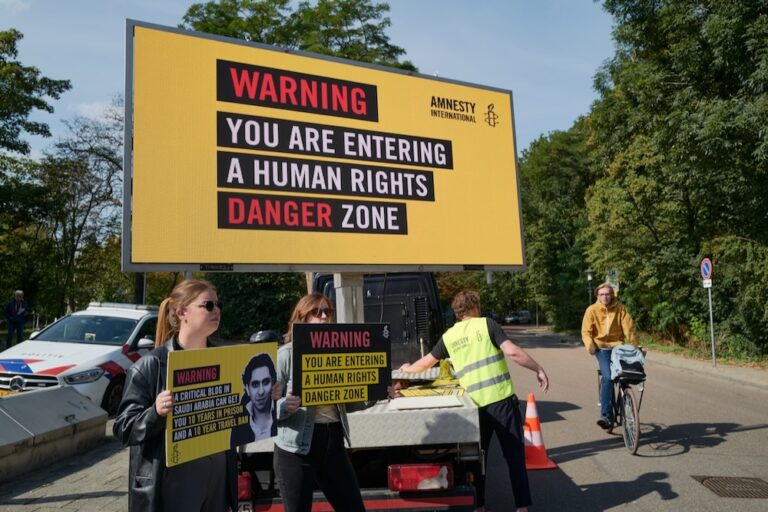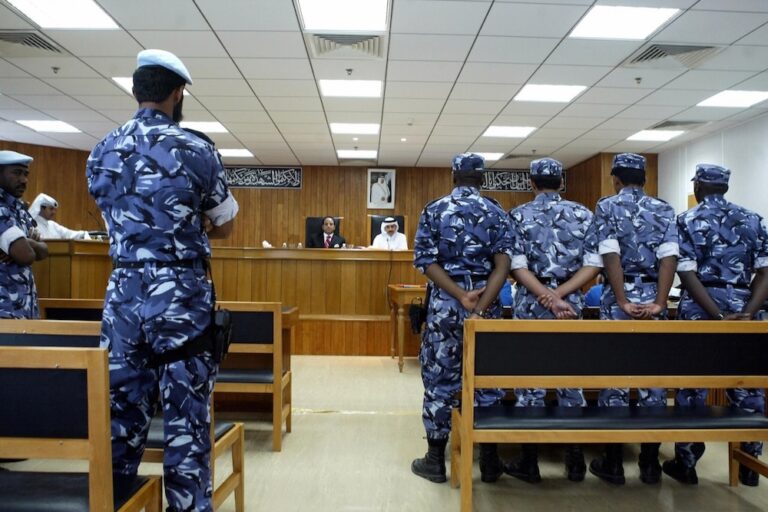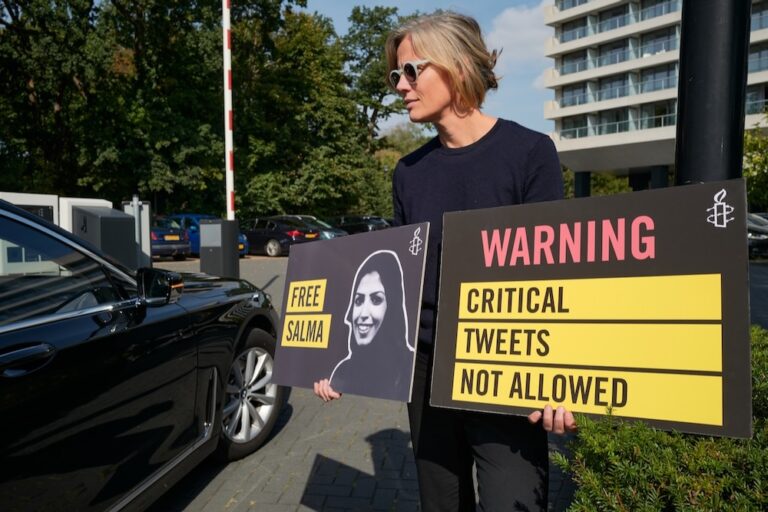Rights groups call on the Biden administration to address the escalating crackdown on free expression.
This statement was originally published on cpj.org on 2 October 2023.
On the fifth anniversary of the murder of Saudi journalist Jamal Khashoggi, the Committee to Protect Journalists has joined 14 other press freedom and human rights groups in calling on the Biden administration to reverse its current policy on Saudi Arabia and to urge the Saudi authorities to stop detaining and targeting the country’s journalists. CPJ’s annual prison census documented 11 Saudi journalists in jail for their work as of December 1, 2022.
Read the full joint statement below
Five years have passed since the heinous murder of Saudi journalist Jamal Khashoggi at the country’s consulate in Istanbul on October 2, 2018, in an operation that US intelligence found to have been approved by Saudi Arabia’s Crown Prince Mohammed bin Salman (MBS). Despite campaign promises to hold Saudi Arabia accountable for the murder, the Biden administration has not only failed to support an international, independent and impartial investigation, it helped immeasurably in aiding MBS’s rehabilitation on the international stage. Tragically, the result has been the unprecedented worsening of government repression and abuses under the leadership of the crown prince.
We, the undersigned organizations, hoping to honor Jamal Khashoggi’s memory, call on the Biden administration to reverse its current policy and prioritize significant and genuine human rights improvements by the Saudi government. The Biden administration should not continue to look the other way as the relentless crackdown on human rights continues to escalate in Saudi Arabia. Such scrutiny is essential to achieving Saudi Arabia’s own Vision 2030 objective of “creating a vibrant society in which all citizens can thrive and pursue their passions.” It will also demonstrate to the world that the United States remains committed to upholding the UN Charter and international law, as reaffirmed in a recent joint statement with Gulf Cooperation Council member states.
These measures should include urging Saudi authorities to:
- Cease detention and targeting of journalists inside Saudi Arabia. There are currently at least 11 journalists still imprisoned in the country. This group includes Jordanian journalist Abdulrahman Farhana, sentenced to 19 years in prison by a Saudi court in August 2021, according to the Committee to Protect Journalists. Ahmed Ali Abdelkader, a Sudanese journalist, was given a four-year sentence in July 2021 for criticizing Saudi actions in Sudan and Yemen, on social media.
- End the crackdown on free expression and speech in Saudi Arabia and unconditionally release detainees in prison for expressing peaceful views. This must include Muhammad al-Ghamdi, recently sentenced to death for tweeting criticism of Saudi government policies to fewer than 10 followers. Other individuals who should be released include Salma al-Shehab, Salman Alodah, Fatima al-Shawarbi, Abdelrahman al-Sadhan, and many others. U.S. citizen Saad Almadi, jailed for tweets sent while in the United States, must also be permitted to travel.
- End growing transnational repression practices. The Saudi government increasingly crosses its borders in pursuing critics. Its tactics include abuse of international arrest warrants (as seen in the February 2023 extradition of activist Hassan al-Rabea to Saudi Arabia from Morocco); use of Saudi agents on U.S. soil to harass and surveil (a Saudi man was arrested in 2022 by the FBI for targeting one dissident); and the unjust detention of critics’ families (including Sarah and Omar Aljabri, arrested in March 2020, the children of former government official Saad Aljabri).
- End the criminalization of civic and political space. The government must end its crackdown on independent human rights groups and allow space for genuine civic and political engagement inside and outside the country, including individuals who put forth the People’s Vision of Reform that envisions a democratic state with liberties, rights, and elections. This must also include the release of human rights activists such as Mohamed al-Qahtani, who has been jailed for over a decade and forcibly disappeared for nearly a year following the expiry of his prison term due to his peaceful human rights work.
If the Biden administration does not work to secure significant commitments in line with the above recommendations, it would indicate that it has forsaken Jamal’s memory and his vision for a free, just, and democratic Saudi Arabia. The crown prince’s repressive practices and policies are a threat not only to people residing in Saudi Arabia, but to anyone who dares criticize him no matter where they reside, as illustrated by Jamal’s brutal murder.



